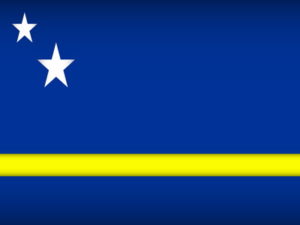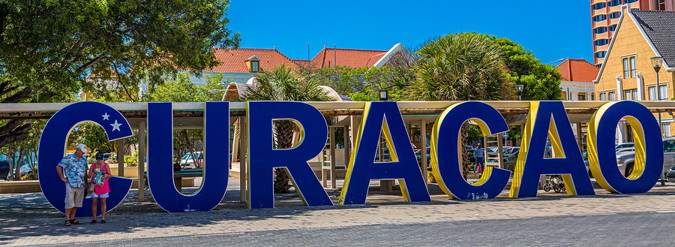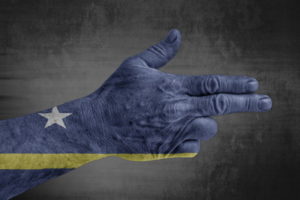Has Curacao Been ‘Bought’ By Gambling Companies?
 Online gambling has become one of the most important sectors of the industry, with recent reports suggesting that Rank Group, which is the company that owns both Mecca Bingo and Grosvenor Casinos, has made a profit despite the fact that fewer people are going to the bingo and people are spending less money at casinos.
Online gambling has become one of the most important sectors of the industry, with recent reports suggesting that Rank Group, which is the company that owns both Mecca Bingo and Grosvenor Casinos, has made a profit despite the fact that fewer people are going to the bingo and people are spending less money at casinos.
The profit has come about thanks to their online portfolio, which the Group has decided to improve upon in order to make more money at a time when physical properties are becoming less and less profitable.
That is what the reputable side of the gambling industry is up to, but is it possible that those involved in the less reputable side are using their influence for far more nefarious means?
The power of nine gambling companies has been growing year-on-year, with a new BBC report suggesting that Curacao, off the coast of Venezuela, has essentially been ‘bought’ by gambling interests who are using the island to allow them to open bank accounts and gain licenses that let them sell their wares to under-age gamblers.
What Has Been Alleged

The producer and presenter of a series of BBC radio documentaries, Jolyon Jenkins, became interested in the goings on on the island of Curacao when his son discovered a website that was licensed there.
After a little bit of research he found out that a number of sites that either deliberately targeted or, at the very least, turned a blind-eye to underage gambling got their licenses from the island. About the same size as the Isle Of Wight and located close to Venezuela, the island was one of the Dutch Antilles and the Netherlands is responsible for its governance.
Because the island has a strong financial system in place, they have become a place of interest both for those looking to avoid paying tax but also criminals that deal drugs in countries like Colombia and Venezuela.
There has been billions of pounds in money laundering done on the island, with the US State Department believing that online gambling is one of the key methods used to launder drugs money. A tad more research revealed that the licenses are of dubious legality, with it being more than possible that the system may have been put in place in order to encourage political corruption.
Whistleblower Shot Dead
 In 2017 the politician Helmin Wiels, who was a part of the Pueblo Soberano Party, was shot dead on a beach as he relaxed drinking a beer. The Pueblo Soberano Party is one that campaigns for Curacao’s independence from the Netherlands, with Wiels reportedly being a large part of the anti-corruption movement on the island.
In 2017 the politician Helmin Wiels, who was a part of the Pueblo Soberano Party, was shot dead on a beach as he relaxed drinking a beer. The Pueblo Soberano Party is one that campaigns for Curacao’s independence from the Netherlands, with Wiels reportedly being a large part of the anti-corruption movement on the island.
He had been issued with threats before being shot, to the extent that he was given a security guard to accompany him when in public. He had sent the security guard home not long before his assassins walked up to him and shot him five times.
A man named Elvis Kuwas, who was a hitman who worked on behalf of the drugs gang No Limit Soldiers, was found guilty of the murder. Amongst the anti-corruption speeches made by Wiels included one in which he denounced the sale of lottery numbers through UTS, which was a public telecommunications company that wasn’t licensed to sell lotteries.
It allowed minors to buy tickets, which Wiels had a problem with. It is believed that his stance on the matter is what caused his assassination, with some believing that he was preparing to blow the whistle on the practices in place on the island.
Prime Minister Sent To Jail For Money Laundering
 The assassination of Wiels came the year after the former Prime Minister of Curacao, Gerrit Schotte, was sent to prison for three years after being accused of money laundering and bribery whilst he was the Prime Minister. Schotte and his wife had been arrested in 2014 by the Landsrecherche after an investigation given the codename ‘Babel’.
The assassination of Wiels came the year after the former Prime Minister of Curacao, Gerrit Schotte, was sent to prison for three years after being accused of money laundering and bribery whilst he was the Prime Minister. Schotte and his wife had been arrested in 2014 by the Landsrecherche after an investigation given the codename ‘Babel’.
Later the homes and offices of Schotte, a former Minister named Charles Cooper and a business associated of the pair were raided as part of an anti-corruption unit’s investigations.
It gives further credence to the claims of Jenkins in his documentary that the island was a haven for those looking to use gambling as a means of laundering drugs money. The money Schotte had received had come from a gambling operator, which the Italian police alleged had ties to the mafia.
The accusation was therefore made by Jenkins that the island had been taken over by organised crime from the outset in order to facilitate their desire to launder their drug money in as reputable manner as possible. It was done by licensing companies and giving what were known as ‘sub-licenses’ to smaller projects.
Are Curacao Licenses Valid In The UK?
Obviously one of the first questions that sensible people are likely to ask themselves is whether or not they’ve been unwittingly funding the laundering of drugs money by betting with companies that are licensed by the Curacao government. The license and sub-license have been available in Curacao since 1996, which makes it one of the oldest jurisdictions anywhere in the world in terms of regulating gambling.
The good news is that companies with a license from Curacao are able to operate in some parts of the European Union but they hold no stock with the UK Gambling Commission.
A big part of the reason that the UKGC isn’t keen to allow companies to operate in the UK with a Curacao issued license is that there is little to no regulation in place on the island. Indeed, most of the licenses used are actually sub-licenses, which means that a parent company is responsible for what the licensees get up to, rather than any kind of regulatory body.
That doesn’t necessarily mean that if you bet on a website licensed in Curacao then you’ll definitely be involved in money laundering for drugs gangs, but it does mean that nobody can rule out the possibility. Did criminal gangs essentially buy the island in order to launder their money through gambling? It certainly looks likely.



